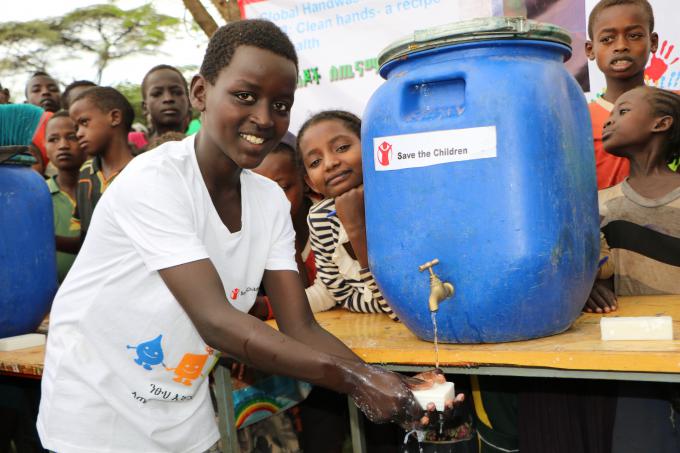“Art Helps Our Messaging”: Begidu’s Story
On October 15, 2018, Save the Children in Ethiopia, through its Integrated Health, Nutrition and WASH project, organized and celebrated the Global Handwashing Day at Gato Full Cycle Elementary School in Konso district of the Southern Nations, Nationalities and People’s Region (SNNPR). This year, the theme of Global Handwashing Day focused on the link between handwashing and food- including food hygiene and nutrition. At the event attended by more than 300 schoolchildren, their teachers and other community members, we met Begidu Tadesse, a grade eight student and member of the school’s WASH Club that Save the Children established and supports through training. Here is what he told us about his involvement in the club and related issues.
“I was selected and trained by Save the Children to participate in our school’s WASH club. We help our fellow students understand the importance of hygiene and sanitation through art. Art helps our messaging. Schoolchildren find it entertaining and educational to attend the drama, poetry and music performances that our WASH club stages at school, mainly focusing on WASH messages. Some of the key messages that we convey through art include the importance of proper handwashing and latrine use in the school, ways of maintaining good hygienic practices and preventing communicable diseases.”
“I am happy that better WASH facilities are now in place at our school. Before, there was no separate latrine for girls and all students used to share a single toilet. The lack of toilet affects all students, but it is the girls who suffer the most. Often, they did not want to share the toilet and had to go to the bushes behind the school. This was not safe for them. Now that the school has separate latrines for boys and girls, all of us are happy to use the toilets whenever we wanted to.”
Save the Children though its integrated health, Nutrition and WASH project funded by the Italian people is working to improve school and community WASH facilities by constructing new sanitation and water supply facilities and rehabilitating the none functional ones. So far the project built two new water supply and two gender segregated sanitation facilities in two schools. It also rehabilitated 49 water supply schemes in four intervention districts in the SNNP Region.
 Ethiopia
Ethiopia 